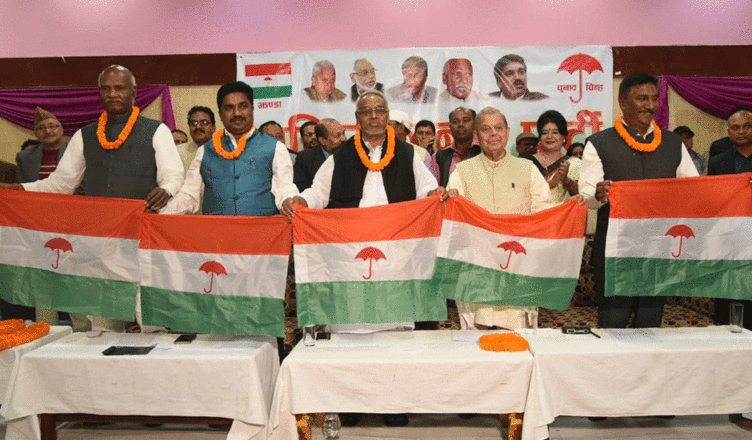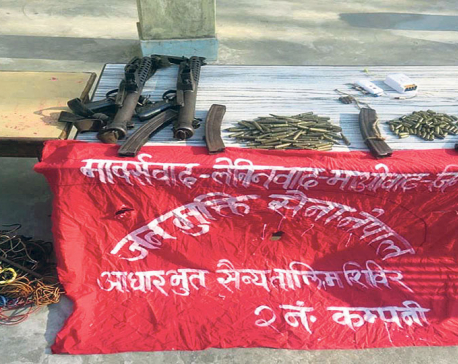
OR
RJPN decides to amend party statute to save its constitutional status
Published On: May 20, 2019 06:30 AM NPT By: Republica | @RepublicaNepal

Decision follows the party's failure to hold general convention within the deadline given by the Election Commission
KATHMANDU, May 20: Rastriya Janata Party Nepal (RJPN) has decided to amend its statute, allowing the party to hold its first general convention within three years since its formation.
A senior leader of the party said a four-day meeting of the party's presidium members held in the capital from Thursday decided to extend the period to three years from the existing two years to save its constitutional status after the party failed to hold the convention within the deadline given by the Election Commission (EC).
The RJPN statute introduced in 2017 incorporated a provision to hold the party's general convention within two years of the formation of the party. RJPN leader Sharat Singh Bhandari said this provision was amended as per the arrangements made in Clause 27 of the party's statute.
Earlier, the EC had asked the RJPN to hold its general convention by April 2019. But as the party is unable to hold its general convention even by July 2019, its top leaders have sought a way out to maintain its constitutional status by amending the provision of holding the general convention within two years in Clause 31 (10) of the party's statute.
RJPN has already announced to hold its first general convention on November 14-16 this year. The failure to amend the provision in the party statute would require RJPN to hold the general convention by July at any cost.
According to a statement issued after the conclusion of the meeting, RJPN has decided to adopt the presidential system, giving up the existing presidium system in which the party is being led by six presidents on a rotational basis, after the general convention as per Clause 21(12) of the party statute.
Among other things, RJPN has decided to form its local level units based on consensus among the local leaderships of the six different parties that had chosen to merge in order to form RJPN in July 2017. With effect from Monday, Anil Jha will chair the RJPN presidium.
You May Like This

Mysterious disease killing dogs in Norway
HELSINKI, Sept 8: Norwegian authorities haven’t been able to detect the cause behind an unexplained disease that is estimated to... Read More...

RJPN working on Madhesi-Janajati protest alliance
KATHMANDU, July 23: Rastriya Janata Party Nepal (RJPN) and ethnic parties have agreed in principle to launch a nationwide movement to... Read More...

Govt restricts Chand group’s activities
KATHMANDU, March 13: The government on Tuesday outlawed the ‘political activities’ of the semi-underground Communist Party of Nepal led by... Read More...







Just In
- NRB to provide collateral-free loans to foreign employment seekers
- NEB to publish Grade 12 results next week
- Body handover begins; Relatives remain dissatisfied with insurance, compensation amount
- NC defers its plan to join Koshi govt
- NRB to review microfinance loan interest rate
- 134 dead in floods and landslides since onset of monsoon this year
- Mahakali Irrigation Project sees only 22 percent physical progress in 18 years
- Singapore now holds world's most powerful passport; Nepal stays at 98th











Leave A Comment